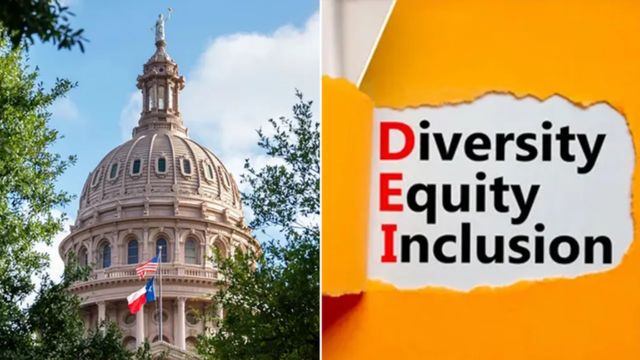University of Texas at Austin Responds to State Law With DEI Program Overhaul
According to a report, the University of Texas at Austin fired scores of staff from its diversity, equity, and inclusion (DEI) programs to comply with a new state statute.
President Jay Hartzell of the University of Texas at Austin stated on Tuesday that the Division of Campus and Community Engagement will be abolished and its activities and funds transferred to other divisions.
The statement comes as the university tries to comply with a new Texas law that went into effect on Jan. 1, effectively dissolving DEI institutions at public colleges and universities across the state.
According to the Austin American-Statesman, a person familiar with the incident stated that 60 DEI-related positions at UT-Austin were removed.
The law requires all governing boards of public colleges and universities to ensure that their institutions prohibit the construction and operation of a DEI office, as well as the issuance of “DEI Statements.” Furthermore, hiring processes and training can no longer use DEI assertions.
“I recognize that strong feelings have surrounded SB 17 from the beginning and will shape many Longhorns’ perceptions of these measures,” Hartzell wrote in response to the new law. “It is also important that this continues to be a welcoming, supportive community for all.”
In the statement, Hartzell stated that student-facing roles will continue throughout the semester and that laid-off employees might apply for other positions at the university.
The firings came after state Sen. Brandon Creighton, a Republican, articulated expectations for how universities will comply with state law. He issued a letter emphasizing the gravity of the bill, stating that it “mandates a fundamental shift in the operation of our higher education institutions.” He also stated that institutions are obliged to provide a “merit-based environment.”
Furthermore, he stated that the Texas Senate Committee on Education plans to host a hearing in May to question chancellors and “general counselors” of higher education institutions about how their universities are complying with the statute. Creighton warned that colleges who fail to comply with state legislation risk losing funds.
Among five specific compliance questions, university spokespeople must explain, “How has your institution ensured that there are no DEI offices or officers on campus, or no individuals or organizations performing the duties of a DEI office or officer?”
Cultural graduations were another casualty of the ordinance, causing indignation among some students.
The closure of the university’s Multicultural Engagement Center (MEC) in accordance with state law had an influence on Black Graduation, Latinx Graduation, and GraduAsian ceremonies.










